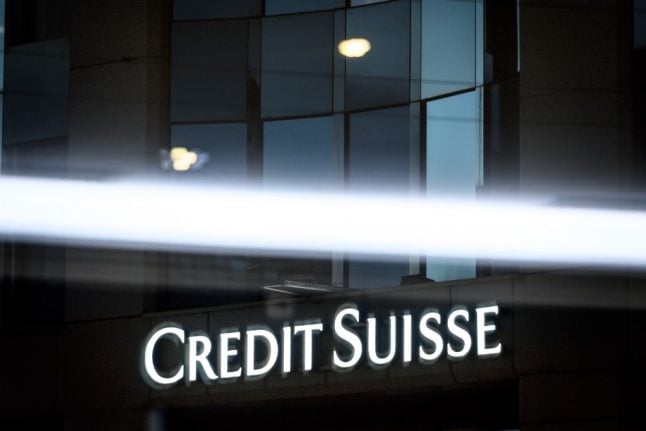The court said Arlette Ricci, 73, had hidden some €18.7 million ($19.8 million) she inherited from her father from the French taxman "for more than 20 years with particular determination."
It also confiscated properties in Paris and Corsica, estimated to be worth around four million euros ($4.2 million).
The French designer's glamorous granddaughter was not present in court for the verdict, but denies the charge that she hid the money by depositing it in the Geneva-based HSBC Private Bank.
Authorities are also demanding Ricci pay back some €10.5 million ($11 million) in unpaid taxes, penalties and fines.
Ricci was given a two-year suspended sentence on top of her jail term, which she would only have to serve if she re-offends.
The court also handed her tax lawyer a one-year suspended sentence and ordered him to pay a €10,000 ($10,575) fine, while giving her daughter an eight-month suspended sentence for tax fraud.
The Nina Ricci house was founded in 1932 in Paris, and is known for its luxury perfumes — especially the floral classic L'Air du Temps — and its classic, slender fashion lines.
The case against Arlette Ricci began after revelations that the Swiss private banking arm of British giant HSBC had helped clients hide billions from the taxman, in what became known as the SwissLeaks scandal.
The court said the heiress's actions had posed "an exceptional threat to public order".
Crackdown on fraud
Ricci's lawyers slammed the decision, and said they would wait for the full details before deciding whether to appeal.
"Justice was done under frenetic, brutal pressure . . . by the prosecution," Jean-Marc Fedida said, adding he thought the aim was to have a high-profile defendant "as a sort of warning to all those whom we think have accounts abroad."
In February, the prosecution had demanded Ricci be handed a two-year jail term and a €3 million ($3.2 million) fine.
During the trial, the defence team had regularly questioned the French authorities' reliance on stolen documents supplied by former HSBC IT employee Herve Falciani.
But the court systematically overturned their procedural complaints.
France has vowed to crack down on tax cheats, particularly after a major scandal in 2013 saw former budget minister Jerome Cahuzac charged with tax fraud.
Cahuzac, who had been tasked with fighting tax evasion, was found to have an undeclared Swiss bank account containing some €600,000 ($635,000).
In February, France's Le Monde and other international newspapers revealed that HSBC's Swiss arm allegedly helped over 120,000 clients to hide €180.6 billion ($193.6 billion) from tax authorities.
The findings came among growing evidence that pledges by banks to halt illicit or irresponsible activities that led up to the 2008 financial crisis have not been fulfilled.
HSBC said last week it was facing a French criminal probe over the allegations.
According to the investigations into Falciani's whistle-blowing data, HSBC's Swiss unit allegedly arranged for more than €5 billion ($5.3 billion) to be tucked away in trusts, shell companies and offshore accounts for around 9,000 French clients.



 Please whitelist us to continue reading.
Please whitelist us to continue reading.
Member comments